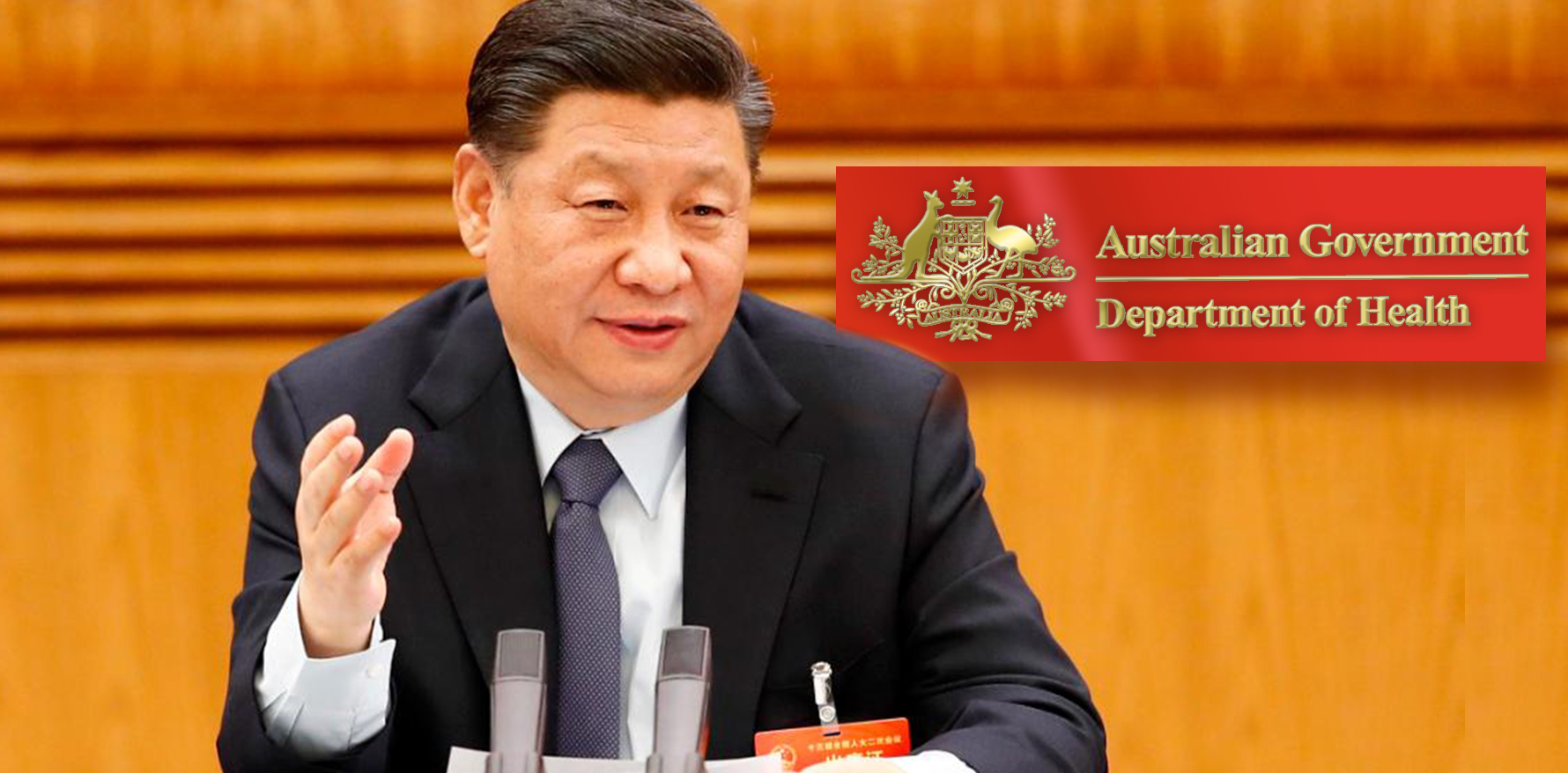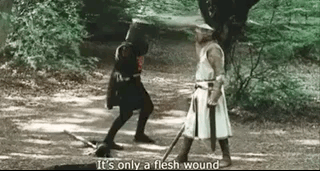The department’s little ‘rethink’ has blindsided all the key GP organisations involved in training.
Late Thursday afternoon the Department of Health officially informed the RACGP that it would be effectively withdrawing the right it granted back to the College in 2017 to renew its oversight and control of GP training come 2022.
Presumably ACRRM got a similar notice (we haven’t been able to confirm that yet). The RACGP was blindsided, although all their spokespeople aren’t about to admit that. Their positioning on the reversal is that they welcome the chance to step back and have a “fresh look” at all the issues of training and workforce placement”.
It’s a testament to how powerful the DoH is these days that the RACGP isn’t prepared even a little to fight for what they’d lobbied for for more than a decade and which would have cemented significant positional power for the organisation moving forward. Even if it wasn’t right for them to have all that power, it might be a bit little worrying to have the RACGP, after nearly three years of hard work preparing and negotiating for the changeover, to say at five minutes to midnight, “no, good call Brendan”. Either that or they realised what a huge drama they were getting themselves into and actually wanted out.
Other key organisations, the GP Supervisors Association (GPSA), the GP registrars association (GPRA), and the association governing all the regional training organisations (RTOs) that train GPs around the country, weren’t even informed at the same time as the RACGP. They all learnt via the RACGP or some other back door yesterday (although some were likely briefed confidentially on the fly).
The first and only whiff of something being wrong came a week ago in an email newsletter sent by the GPSA head Dr Nicole Higgins, to the organisation saying “If the rumours are true, the Department of Health has temporarily halted transition of training to the colleges, supervisors and registrars are to be employed by the government and RTOs are endangered.”
Dr Higgins didn’t have to wait long for that rumour to be confirmed. In fact as far as leaks followed by formal confirmations are concerned, this one might be a record given just how seismic the change is, and how little warning (none) all the major stakeholders were given, let alone “consultation”.
In his new treatise on the workings of the Chinese Communist Party (CCP), Hidden Hand, Clive Hamilton describes an organisation that is at once all-seeing, all-powerful, hugely clever, and, with the benefit of endless tenure, able to plan and execute without any of the normal inefficiencies of a democracy.
This backflip by the DoH might have come straight from the playbook of the CCP, for reasons that are both obvious and perhaps also a bit surprising.
Surprising in that the “evil” plan, hatched almost entirely behind closed doors by a small and elite group of individuals both within and without the DoH, might end up a good plan. Although there is no detail yet, the big settings look like they are there to solve a number of issues for general practice moving forward:
- Centralised national control by the government, with appropriate regional input from more than one regional stakeholder, could be much more efficient for all parts of the system, and fairer. But only if managed very well.
- GP training and workforce issues are multilayered and complex and will almost certainly not be solved by handing most of the power over to the RACGP. A step back and fresh look, involving all relevant parties, if well managed, is a good idea.
- The proposal by the DoH to not give away training after all includes the idea of moving registrars into a “single employer” environment. This should be a lot more efficient for practices managing trainees, will almost certainly result in trainees getting paid properly out of their hospital training stint (encouraging more to go the GP path), and could solve the problem of a lack of rural and remote registrars, and via solving this, eventually the huge issue of a shortage of rural and remote GPs. The sting of course in the tale of this particular policy would be that GP registrars would be forced to do some rural and remote training, as teachers currently are, if they want a good placement later in their careers.
- There have always been, and should be, significant question marks over the ability of the RACGP and ACRRM to take back the management of such a complex and big venture as GP registrar work supervision and training. The college, to some degree, has its past 10 years of mismanagement and poor politicking to blame for people questioning the handover. But even more practically, GP training is hugely complex and a business involving the management of over $140m in funds. It’s not a step up for the current RACGP management expertise and experience, it’s a trip through a wormhole to another dimension. There was always a lot of risk in handing over such a big and complex task to an organisation that in no way had the management background or expertise to take it on, let alone transition it.
- The RTOs are struggling anyway to deliver in the current setup and it’s not likely the RACGP would have easily helped in restructuring that.
Put yourself now in the shoes of the DoH, and quite apart from the move giving the whole process a better chance of succeeding over time, the amount of control they were giving away was probably too much – certainly too much for the current new crop of senior leaders. Their ability to do what they wanted when they wanted, as they largely do now – hence this backflip with no formal repercussions despite its potential for relationship chaos – would be forever significantly scaled down.
But as much as we might admire some aspects of how the CCP operates, is the DoH tactic here a sign of strong leadership, or strong disregard for all the major parties involved, not least of which are those who are going to be most impacted – registrars, supervisors and the RTOs?
Why no consultation at all?
A logical reason for the lack of consultation may lie in changes to key personnel at the top of the DoH recently who have a different view on how training should be done, and the fact that if they want to make this change, they have virtually no time to do it. All contracts with current organisations running training end at the end of 2022.
If you’re a giant RTO, that really gives you no time to plan and give staff any certainty unless the DoH can provide it within the next few months. That isn’t likely to happen given the number of organisations the DoH has just announced it is going to attempt to get back to the table to work out issues that have been deteriorating in the system for more than a decade.
With just a few months until key players like the RTOs start to destabilise, the DoH must be pretty sure about what it is doing. Or not. In which case, things could get ugly and unstable reasonably quickly among all the major players.
In some sort of display of the care (possibly fear induced) with which almost all the organisations involved in GP training treat the DoH (there are about 40 all up) none are at this stage prepared to point out the obvious lack of consultation for such a big decision.
Most will say that there might be some good to come from a new look, and there are issues that were not likely to be sorted out by the RACGP assuming full control.
But plenty are worried as well.
The GPSA’s Dr Higgins tells TMR that while there are plenty of reasons to step back and have a closer look at how the whole training and workforce solution problems can be solved, she is concerned at just how little time everyone has now to get that solution agreed and in motion. She says that hopefully, everyone, including the DoH, will slow down, and find a way for the process of review to be thorough. She says that without proper consultation with the major stakeholders the risk of mistakes is high.
The RACGP, so far without a president elect being able to comment, has taken a position that there is nothing to see here.
Vice President Ayman Shenouda tells TMR that “It’s an opportunity of a lifetime that we need to grab”, and that the college’s “position is that we can now have a fresh look on how things are done with training and that all the people involved with training can now sit down at the table and come up with a very good solution … at the same time”.
Which is in some ways comforting. The RACGP thinks it’s all good, apparently, or officially even.
But as Dr Higgins says, what has happened is that the RACGP has gone from “leading GP training, to delivering GP training”. The distinction isn’t even subtle. It has lost control. And while the college will always be a central and important component of delivery, controlling is very different from delivering and framing, which is what they will now be reduced to.
The most paranoid group at the moment will be the RTOs. Some on the inside of things have already commented that RTOs as we have known them won’t exist in the new future of GP training. Exactly what that means isn’t clear, but if you were an RTO hoping to transition under the RACGP within the next year, based on whole lot of painstaking work and negotiation you’ve undertaken over the past two years, you can refile that hope under “forgotten dreams”.
The most delighted, so far, are likely to be a niche group of rural GP trainers, who have been struggling for years now to solve the problem of getting remote-region roles filled adequately. In particular the RTO formed out of James Cook University may have been one of the few insiders to be helping inform the decision of the few power brokers inside the DoH. If it is true that this issue had a big influence on the backflip, we might have a small rural tail (important as we all know it is) wagging a large urban training dog.
Whatever the situation, all bets are now off.
It all starts again for the 40 or so interested organisations now. It’s going to be a tough 12 months ahead to get this all resorted, and come out in front of where we were already, all good intent on the part of the DoH notwithstanding.
As ruthless and CCP-like as the DoH has been here, the one thing going for it is that hardly anyone is arguing that the mess is one the RACGP could have sorted out.
A well managed central intervention, as last-minute as this is, might actually help.
Hopefully we will all look back a year from now and think, hmmmm … those guys and gals in the DoH really did act like the CCP.
And thank God for that.



